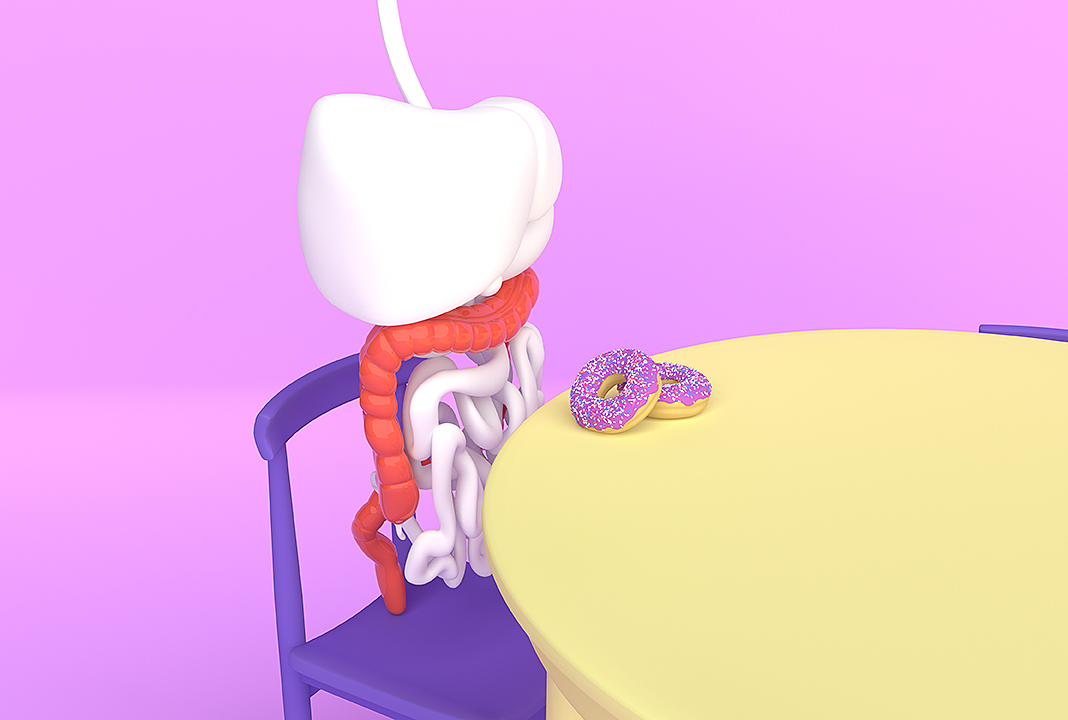Inflammatory Bowel Disease: Myths & Misconceptions

Each year about 3 million people in the United States are diagnosed with some form of inflammatory bowel disease (IBD), according to the Centers for Disease Control and Prevention (CDC). Inflammatory bowel disease can cause debilitating symptoms and potentially life-threatening complications when left untreated.
Since doctors are not certain about the exact causes of IBD, there's much misinformation about this condition published online, which can be confusing if you're trying to live your best life with IBD. But before we look at the most common myths about inflammatory bowel disease and the actual truths that debunk them, it's useful to first understand what this disease is.
Inflammatory bowel disease is a general term that describes a variety of disorders involving chronic inflammation of the digestive tract. The two main types of IBD are ulcerative colitis and Crohn's disease.
Myth: Inflammatory bowel disease is caused by stress.
Reality: Though stress was previously believed to be one of the causes of IBD, this has been disproved by additional research over the years. Scientists now know that while stress may act as an aggravating factor that can lead to a flare-up of the disease, it is not the cause of it.
This myth also persists, in part, due to people sometimes confusing inflammatory bowel disease with irritable bowel syndrome (IBS), which is sometimes connected to mental health issues such as anxiety, depression and panic disorder.
Myth: Poor diet causes inflammatory bowel disease.
Reality: It's a common misconception that eating too much junk food can cause inflammatory bowel disease. Much like with stress, doctors have found that diet is not a cause of inflammatory bowel disease, though it may play a role in triggering flare-ups. For this reason, it may be useful to keep a log of what you eat, so you can identify foods that might worsen symptoms and avoid them in the future.
Myth: I can't take any inflammatory bowel disease medications while pregnant.
Reality: It's true that some medications prescribed to treat IBD should not be taken during pregnancy. However, plenty of medications are available for you to take safely while pregnant to manage symptoms.
If you're already on medication for inflammatory bowel disease and you become pregnant, talk to your doctor about any adjustments that should be made to your current medications. It's important to safely continue treatment while pregnant because flare-ups of IBD can be dangerous for both the mother and the baby during pregnancy.
Myth: I shouldn't breastfeed while taking medication for inflammatory bowel disease.
Reality: Some medications used to treat inflammatory bowel disease shouldn't be taken while breastfeeding. But that doesn't mean you can't take any medication at all to treat the disease. Talk to your doctor about temporarily switching to medications that will be safe for you to take while breastfeeding.
Myth: Surgery will always be necessary eventually.
Reality: There are certainly cases in which surgery becomes necessary to treat inflammatory bowel disease. However, surgery is needed only when a patient's symptoms are no longer manageable through other treatments, such as medication and diet regulation.
It's important to remember that people with IBD often experience cycles of flare-ups and remission. For some individuals, though, periods of remission can continue for months and even years without any symptoms. If you have inflammatory bowel disease, that does not mean you will definitely require surgery in the future, though the option is there for you if you ever need it.


















